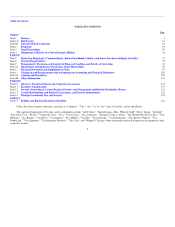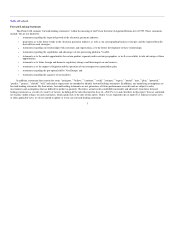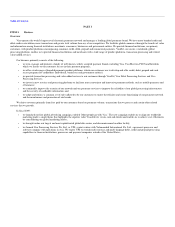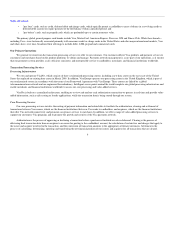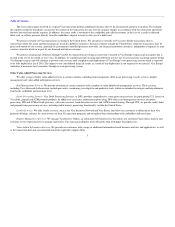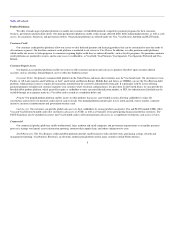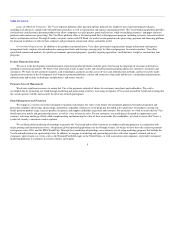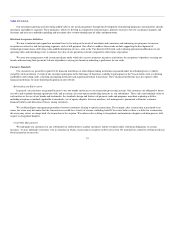Visa 2009 Annual Report Download - page 13
Download and view the complete annual report
Please find page 13 of the 2009 Visa annual report below. You can navigate through the pages in the report by either clicking on the pages listed below, or by using the keyword search tool below to find specific information within the annual report.
Table of Contents
our customers and us by promoting the overall growth of our payments network in competition with other payment card systems and other forms of payment
and creating incentives for innovation, enhanced data quality and security.
Interchange reimbursement fees and related practices also have come to the attention of, or have been or are being reviewed by, regulatory authorities
and/or central banks in a number of jurisdictions, including the United States, the European Union, Australia, Brazil, Canada, Colombia, Germany, Honduras,
Hungary, Mexico, New Zealand, Norway, Poland, Portugal, Romania, Singapore, South Africa, Spain, Sweden, Switzerland and the United Kingdom. In
certain countries, such as Australia and Mexico, interchange rates have been adjusted in advance of, or in response to, government regulation. We are
currently devoting substantial management and financial resources to explain the importance of and defend interchange reimbursement fees and other legal
and regulatory challenges we face relating to interchange reimbursement fees. See Item 1A—Risk Factors—Interchange reimbursement fees and related
practices are subject to significant legal and regulatory scrutiny worldwide, which may have a material adverse impact on our revenues, our prospects for
future growth and our overall business, and Item 8—Financial Statements and Supplementary Data—Note 21—Legal Matters elsewhere in this report.
Merchant Discount Rates. Merchants do not pay interchange reimbursement fees. A merchant's cost of acceptance is determined by its acquirer and is
called a merchant discount or merchant discount rate. The merchant discount typically covers the costs that acquirers incur for participation in four-party
payments networks, including those relating to interchange, and compensates them for various other services they provide to merchants. Merchant discount
rates and other merchant fees are set by our acquirers without our involvement and by agreement with their merchant customers and are established in
competition with other acquirers, other payment card systems and other forms of payment. We do not establish or regulate merchant discount rates or any
other fees charged by our acquirers.
Government Regulation
We are subject to government regulation of the payments industry in many countries in which our cards are used. Our customers are also subject to
numerous regulations applicable to banks and other financial institutions in the United States and elsewhere, and as a consequence our business is affected by
such regulations. For more information on government regulations that may affect our business, see Item 1A—Risk Factors.
Intellectual Property
We rely on a combination of patent, trademark, copyright and trade secret laws in the United States and other jurisdictions, as well as confidentiality
procedures and contractual provisions, to protect our proprietary technology.
We own a number of valuable trademarks and designs, which are essential to our business, including Visa, Interlink, PLUS, Visa Electron, the "Winged
V" design, the "Dove" design and the "Bands Design—Blue, White & Gold." We also own numerous other valuable trademarks and designs covering various
brands, products, programs and services. Through agreements with our customers, we authorize and monitor the use of our trademarks in connection with
their participation in our payments network.
In addition, we own a number of patents and patent applications relating to payments solutions, transaction processing, security systems and other
matters.
12


